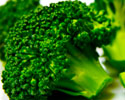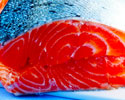Earth & Space | Crime | Environment | Health | History | Nature | Military | War | Politics | Science | Society | Technology | Truth Conspiracy
What Are Superfoods?
Superfoods to help prevent Cardiovascular Disease and ossible Cancer.
Dietitians avoid the term "superfood" and prefer to talk of "super diets", where the emphasis is on a healthy, balanced diet, rich in fruit and vegetables and wholegrain foods. There is good evidence that the Mediterranean diet can reduce the risk of some chronic diseases and increase life expectancy.
Blueberries, kale, salmon—you’ve heard countless times about the nutritional benefits of these everyday ingredients, commonly labeled “superfoods.” There’s no official scientific definition of a superfood, but it’s generally accepted that superfoods contain high levels of much-needed vitamins and minerals. They can also be a source of antioxidants, substances that shield our bodies from cell damage and help prevent disease.
I made this page with the interest in antioxidents and cancer prevention. Unfortunately studies have insufficient evidence that any can reduce cancer. If any can, it will be commented below. I have only witten confirmed positives that worked on hmans.
Before we start, I wanted to list foods and there are great eseentials to diet.
Eggs - Each egg has 6 grams of protein but just 72 calories
Carrots - carotenoids like beta-carotene, which converts to vitamin A
Tomato - loaded with lycopene, which makes your skin look younger and keeps your heart healthy.
Dried plums (prunes) - They're packed with polyphenols.
Walnuts - Just 14 walnut halves provide more than twice your daily dose of alpha-linolenic acid
Brussels sprouts - They have more glucosinolates.
Spinach - A half-cup provides more than five times your daily dose of vitamin K
Olives / Olive Oil - Contains monounsaturated fat, best choice over others.
Strawberries - They're loaded with ellagitannins, phytochemicals. Also Vitamin C
Kiwifruit (kiwi) - high vitamin C
Sardines 3 oz provide more than 100% of your daily vitamin D. Sardines are also a top source of omega-3 fats.
Bananas - packed with 400 – 600 milligrams of potassium.
Milk and dairy - providers of calcium, phosphorous, magnesium and protein.
High concentrations of Vitamin C can be found Green leafy foods, and fruit. I have listed them on my "Colds and Flu Survival" page.
 |
Blueberries / Blackcurrants, an Antioxidant SuperfoodThey are low in calories and high in nutrients, including phenolic compounds with an antioxidant capacity significantly higher than vitamins C or E. A small study in 2015 involving 48 post-menopausal women, found that women who were given blueberry powder supplements over the course of eight weeks experienced a small, but clinically significant, drop in blood pressure. |
 |
BroccoliBroccoli is a good source of vitamin C and folate (naturally occurring folic acid). It also contains vitamins A, K, calcium, fibre, beta-carotene and other antioxidants (notably indole-3-carbinol and sulforaphane). Eating more non-starchy vegetables, such as broccoli, is associated with a reduced risk of some cancers (including mouth, throat and stomach cancers), according to a good quality 2007 review (PDF, 1.8Mb) of the evidence on cancer prevention by the World Cancer Research Fund. Tests saw a reduction peoples levels of cholesterol and triglycerides. All cruciferous veggies (think cauliflower, cabbage, kale) contain cancer-fighting properties, but broccoli is the only one with a sizable amount of sulforaphane, a potent compound that boosts the body's protective enzymes and flushes out cancer-causing chemicals. Listed on canceractive - contains indoles, and especially indole3carbinol which, along with its metabolite DIM, modifies and diminishes aggressive oestrogen action, can modify cellular oestrogen receptor sites, and aids in fighting oestrogen-driven cancers like some breast, prostate, brain and colorectal cancers |
 |
Cacao/Cocoa Powder / Dark ChocolateLike chocolate, cacao powder contains flavonoid antioxidants, which are known to help lower blood pressure and improve blood flow to the brain and heart. 60% or higher cocoa content; the darker, the better. In addition, the darker it is, the lower the fat and sugar content. "However, the potential health benefit of some compounds in chocolate have to be weighed against the fact that to make chocolate, cocoa is combined with sugar and fat. "This means chocolate is an energy-dense food that could contribute to weight gain and a higher risk of disease. As an occasional treat, chocolate can be part of a healthy diet. Eaten too frequently, it is an unhealthy choice." |
 |
Green tea: the elixir of lifeGreen tea has been used in traditional Chinese medicine for centuries to treat everything from headaches to depression. The leaves are supposedly richer in antioxidants than other types of tea because of the way they are processed. Green tea contains B vitamins, folate (naturally occurring folic acid), manganese, potassium, magnesium, caffeine and other antioxidants, notably catechins. A small study from 2014 looked at how effective a green tea mouthwash was in preventing tooth decay compared with the more commonly used antibacterial mouthwash chlorhexidine. The results suggested they were equally effective, though green tea mouthwash has the added practical advantage of being cheaper. |
 |
GarlicA well-conducted review from 2009 of 29 good-quality studies involving a combined total of 1,794 participants concluded that garlic – mainly garlic powder – produced "modest reductions" in total cholesterol levels. |
 |
omega-3 Oily fish: a Superfood for the Heart, Joints, and MemoryInterest in the health benefits of oily fish started when researchers observed that Eskimos, who mainly eat oily fish, had fewer than average heart attacks and strokes. Oily fish such as salmon, mackerel and sardines are said to help against cardiovascular disease, prostate cancer, age-related vision loss and dementia. It's a good source of vitamin D, protein, some B vitamins and selenium. It's also a rich source of omega-3 fatty acids, a type of fat that is good for our health. Studies have found eating oily fish can lower blood pressure and reduce fat build-up in the arteries. The evidence is strong enough to warrant a government recommendation that we eat at least two portions of fish a week, one of which should be oily. They also found that women who ate one or more servings of oily fish were 29% less likely to develop rheumatoid arthritis than women who never, or very rarely, ate oily fish. |
She investigates whether antioxidant smoothies really give us the healthy boost we think and discovers why multivitamin pills might do us more harm than good. In a unique experiment with scientists from Aston and Liverpool John Moores universities, she sets out to find the healthiest breakfast, and discovers why we'd be better off with bacon and eggs rather than cereal and fruit. To find out whether we can really detoxify our bodies, she puts some popular detox foods and drinks to the test and reveals why we're better off with fresh foods and the odd glass of wine.
Welcome to Documentary Videos World!
Thanks for stopping by. We welcome your comments.
